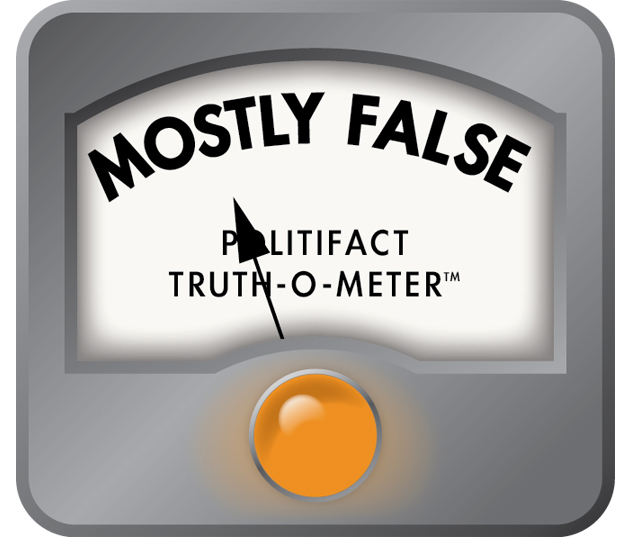sen ted cruz r TX lies again, this time to in a vile attempt to place responsibility for the mass shooting in Sutherland Springs, TX on Senate Democrats. While it is true too many Democratic politicians are afraid of the nra and will not stand up to them in the US Congress and state legislatures cruz deliberately lies, deceives and manipulates the facts of this tragedy to make it seem like his legislation would have stopped it. Another example of the Christianity cruz practices, the one that allows lies and bearing false witness to make yourself look good and bring you political power. No wonder his face causes backpfeifengesicht. From PolitiFact.....

Could Ted Cruz measure have prevented the Texas church shooting? Not likely.
Reacting to the church shootings in Sutherland Springs, Texas, Sen. Ted Cruz said there could have been laws on the books to prevent what happened, had his opponents in Congress not defeated his proposal a few years ago.
"The Democrats filibustered the legislation that would’ve resulted in this shooter being in federal prison instead of murdering those innocents in that Texas church," Cruz said on Fox News on Nov. 6.
Cruz, a Republican, is talking about a failed amendment he co-sponsored to curtail an expansion of background checks and increase prosecution of people who lied about their criminal histories to obtain firearms.
He has a point that the Democrats didn’t back it, but he fails to mention that every amendment on the 2013 gun control bill faced the same hurdle, and a Democratic one also fell short.
While Democrats defeated his proposal, experts said it would not have made the crucial difference in this massacre for a couple of reasons.
Guidelines were already in the works
The Texas church shooter was discharged from the Air Force for bad conduct after he was court-martialed in 2012 for assaulting his wife and fracturing his stepson's skull. Federal law prohibited him from buying or possessing firearms after this conviction, but he got past the background check system because the Air Force failed to enter the shooter’s felony into the background check database.
So when he purchased two guns at the San Antonio gun shop Academy Sports + Outdoors, both sales were approved by the National Instant Criminal Background Check System.
When we asked Cruz’s office for details, they softened what Cruz originally said, saying his legislation would have "increased the chances of preventing the Air Force error that led to the failure to submit the relevant information to NICS."
The amendment pushed for clearer guidance on submissions of federal records to the National Instant Criminal Background Check System (mandated by NICS Improvement Amendments Act of 2007) and required that federal agencies submit plans for making the information available.
"The only possible contribution may have been that the reporting requirement to the AG might have led the Defense Department and the Air Force to realize that the procedures they had in place needed enhancement," said Geoffrey Corn, a law professor at South Texas College of Law Houston.
But the language was a near replica of President Barack Obama’s Jan. 16, 2013 memorandum to the Justice Department, which officials were already trying to implement.
Molly Moran, who served as the Principal Deputy Associate Attorney General from 2014 to 2016, said she and her colleagues at the Justice Department worked from 2013 until the end of Obama’s second term in implementing the memo.
It made no difference in the Texas church shooting. The Air Force needed to submit the shooter’s 2012 court-martial, and it failed to do so.
Scaling back penalties for failure to share
Cruz said on Fox that a lack of reporting of federal and state records to the background check system was a problem. But his legislation did not seem to make this easier. The amendment eliminated sanctions for states that failed to submit records and lowered the cap on grant money to help states submit them from $100 million to $20 million.
The original bill from then-Senate Majority Leader Harry Reid, D-Nev., would have expanded background checks on purchases from only federally licensed gun dealers to all transfers, even private ones among family members, with few exceptions. But the Grassley-Cruz amendment chucked the expansion of background checks and even allowed for the interstate sale and transportation of firearms.
"If anything, the only way this would have affected the Texas shooting would be to make it easier for the shooter to attack a church in a neighboring state instead," said Gregory Koger, a political science professor at the University of Miami.
Prosecution of lying on background checks
Cruz also summoned a familiar talking point against gun regulation that few background check lies (where felons say they are not felons) are prosecuted. His amendment created a task force to increase these prosecutions, but it did not mandate that the Justice Department prosecute all of them.
Enhanced prosecution efforts still would not have put the shooter behind bars. Without the court-martial in the database, the shooter would still have passed the background check after marking that he was not a felon.
"He could have been prosecuted had his lie been known by prosecutors, but they had no reason to investigate this until after the shooting," said Adam Winkler, a law professor at University of California, Los Angeles.
The filibuster aspect
Reid set a 60-vote threshold on all amendments to his Safe Communities, Safe Schools Act of 2013 to prevent a situation in which the amendment passed by a bare majority and then was filibustered — by the Republican minority.
Cruz’s amendment failed 52-48, with nine Democrats voting for it and two Republicans voting against (Mark Kirk of Illinois and Mike Lee of Utah). So did the bipartisan Toomey-Manchin background check amendment favored by Democrats, which got 54 votes.
Experts said it was fair to call this a filibuster, though Reid attained the Senate's unanimous consent for the 60-vote threshold.
"The notion that the Democrats are responsible for the failure of this proposal ignores the fact that the GOP was filibustering the underlying bill, which had all the same provisions except the state-to-state expansion of gun rights and a requirement to expand background checks," Koger said.
Our ruling
Cruz said, "The Democrats filibustered the legislation that would’ve resulted in this shooter being in federal prison."
The amendment Cruz cosponsored, which was defeated largely by Democrats after failing to reach a 60-vote threshold, strengthened efforts to prosecute people who lied about their criminal histories to obtain firearms. But the shooter in this case wouldn’t have showed up as having lied because of the Air Force’s failure to report his felony.
The Cruz proposal also aimed to facilitate reporting to the instant background check system with guidelines and deadlines for federal agencies, including the armed services. While similar action by the Obama Justice Department around the same time didn’t help, Cruz’s clarifications becoming law may have. But it’s impossible to say with any certainty.
We rate this statement Mostly False.



No comments:
Post a Comment